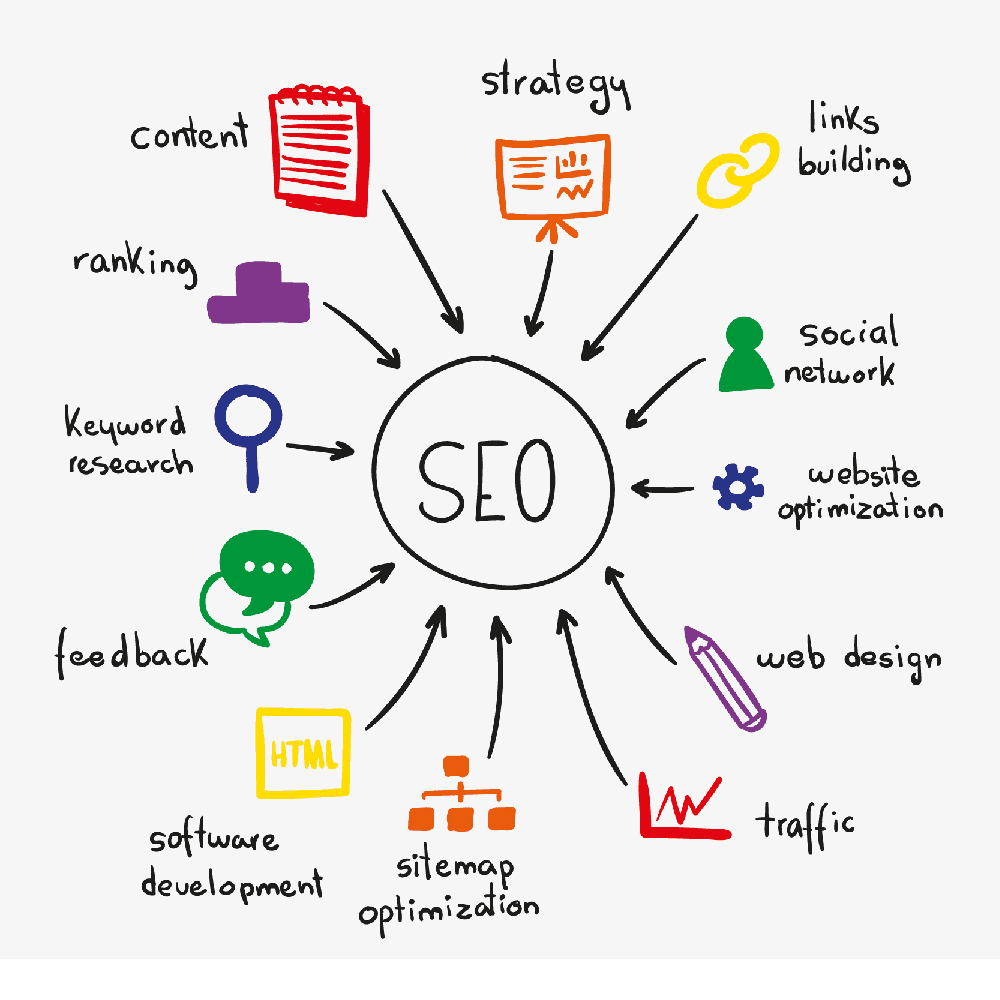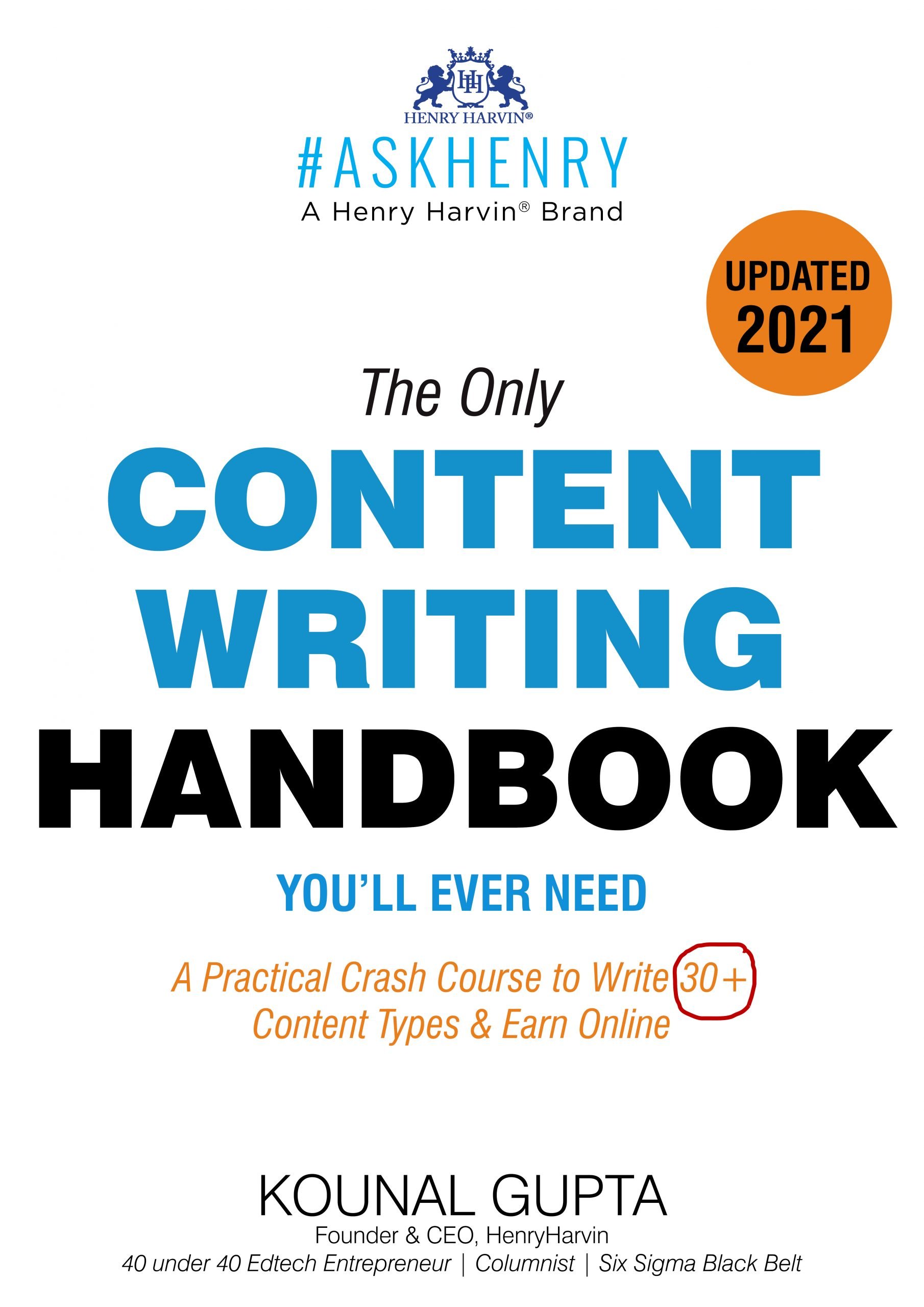Table of Contents
What is SEO?
Yes, to start anything to understand we do have to understand its basics. Such as, What? where, when, whom, why and How. In our whole SEO guide we follow these steps and explore SEO, SEO Guide, SEO content writing, SEO Steps.
SEO — SEARCH ENGINE OPTIMISATION
Likewise of any other definitions SEO is a process. By which an author increase the traffic to his content by using best practices of the SEO copywriting, SEO guide , SEO Steps , SEO content writing.
Best Practices of SEO
There are many best practices of SEO but among those two are most important as well as basics of SEO. Those were Quality and Quantity traffic.
Qualitative Traffic: – However, might be the best piece of content writing. You may look for some good content writing course to have a quality content. If it does not follow certain key practices it cannot reach by more visitors. It should contain catchy points such as, seo copywriting, seo guide, SEO Steps, seo content writing, if you want to make understand your visitors regarding the SEO.
Check Also- Why Henry Harvin Content Writing Course?
So if you want to reach your piece of work to reach more visitors you much understand the key terminologies more off used by the visitors. It might not be complex words. Use simple language and terms what commonly used by visitors.
Upcoming Batches of Content Writing Course:-
| Batch | Mode | Price | To Enrol |
|---|---|---|---|
| Starts Every Week | Live Virtual Classroom | 17500 | ENROLL NOW |
For example: – If you want to make your visitors to understand about coronavirus, you can use more times virus in your content, you can repeat the word corona in it.
Quantitative Traffic: – As such Quality, quantity is also equally important too. We need to understand the target audiences to whom we addressing. We should understand the concepts such as demography. Content readability, reachability etc., if our content reach more people we will get more traffic.
SERP – Search Engine Results Pages
SEO Guide dependently works with SERP.
If you want to increase traffic you must understand the concept of SERP – Search engine results page.
SERP are web pages served to users when they search for something online using a search engine, such as Google, Yahoo and Bing etc. The user enters their search query (often using specific terms and phrases known as keywords), upon which the search engine presents them with a SERP.

SERP (Search engine results pages) basically two types:
Organic Results
Organic results are listings of web pages that appear as a result of the search engine’s algorithm (more on this shortly). Search engine optimization professionals, commonly known as SEOs, specialize in optimizing web content and websites to rank more highly in organic search results.
Paid Results
Paid results are basically advertisements — the Web site owners have paid to have their Web pages display for certain keywords, so these listings show up when someone runs a search query containing those keywords.
SEO Guide
Here we understand more about SEO. SEO guide will navigate you for understanding more in depth of conceptual in it.
SEO will work in two ways on page and off page optimization.
On-page optimization:-
For best practices of On page optimization is you should understand the importance of headline, sub headings, urls, meta tags, Images, Words, internal & external links, key words, meta description, title. Etc.
KEY WORDS are which play a major role in on page optimization. One must understand the right way of using right words in blog or web site or any content. It should be bold, creative, and attractive.
SEO keywords are the keywords and phrases in your web content that make it possible for people to find your site via search engines. A website that is well optimized for search engines “speaks the same language” as its potential visitor base with keywords for SEO that help connect searchers to your site.

On-page Optimization Steps
Title Tag
The title tag, an HTML tag that exists in the head section of each webpage, provides an initial cue or context as to what the topical subject matter is of the respective page it is on. The title tag by itself has little impact on organic rankings, this why it’s sometimes overlooked.
Meta Description
Meta descriptions, Meta tags that provide a description of what the page is about, are often displayed in the SERPs underneath the title of the page.
Optimizing Meta description correctly can help improve:
- Click-through rate (CTR).
- Perception of the quality of the result.
- Perception of what your website offers all change.
Headlines
A title for a blog post might seem too basic, but a great headline can mean the difference between a click and an impression – that’s why it’s important to create them strategically. Your headlines need to spark interest for it to stand out on the SERPs – enticing users to click through and continue reading the rest of the content.
Header Tags
Header tags are HTML elements (H1-H6) used to identify headings and subheadings within your content from other types of text (e.g., paragraph text).Header tags aren’t as critically important for your site rankings as they used to be, but these tags still serve an important function – for your users and your SEO.
They can indirectly impact your rankings by:
- Making your content easier and more enjoyable for visitors to read.
- Providing keyword-rich context about your content for the search engines.
SEO Writing
SEO writing means writing content with both search engines and users in mind. There is a strategy behind writing solid SEO content – and it is more than just keyword research and fill in the blanks.
Duplicate content
“Duplicate content” refers to content that is shared between domains or between multiple pages of a single domain. “Scraped” content goes a step further, and entails the blatant and unauthorized use of content from other sites. This can include taking content and republishing as-is, or modifying it slightly before republishing, without adding any original content or value.
Image Optimization
Image optimization has many advantages, such as:
- Additional ranking opportunities (show up on Google Image Search).
- Better user experience.
- Faster page load times.
Off page optimization
In the context of off page optimization we need to understand linking our content with external links such as social media platforms, linking with high traffic contents, linking with Forum submissions and question and answer sites.

Off page optimization Steps
Back links
Backlinks as indications of the linked-to content’s quality, so a site with many high value backlinks will usually rank better than an otherwise equal site with fewer backlinks.
There are three main types of links, defined by how they were earned: natural links, manually built links, or self-created links.
- Natural links are editorially given without any action on the part of a page owner. For example, a food blogger adding a link to a post that points toward their favorite produce farms is a natural link.
- Manually built links are acquired through deliberate link-building activities. This includes things like getting customers to link to your website or asking influencers to share your content.
- Self-created links are created by practices such as adding a backlink in an online directory, forum, blog comment signature, or a press release with optimized anchor text. Some self-created link building tactics tend toward black hat SEO and are frowned upon by search engines, so tread lightly here.
There are many signals that positively contribute to the equity passed, such as:
- The linking site’s popularity
- How related the linking site’s topic is to the site being linked to
- The “freshness” of the link
- The anchor text used on the linking site
- The trustworthiness of the linking site
- The number of other links on the linking page
- Authority of the linking domain and page
Non-link-related off-site SEO
While earning links from external websites is the most commonly practiced off-page SEO strategy, almost any activity that a) occurs outside of your own website and b) helps to improve your search ranking position could be thought of as “off-page SEO.” These include things like:
- Social media marketing
- Guest blogging
- Linked and unlinked brand mentions
- Influencer marketing
On-page SEO consists of factors that a website owner can directly manipulate on their site. Off-page search engine optimization refers to the digital signals outside of one’s own website that marketers can influence indirectly.
There are notable differences between on-page and off-page optimization in SEO which we will go over in the following sections. On a strategic level, off-page SEO is the more difficult and tedious of the two, so we’ll cover that first.

SEO content writing vs SEO copy writing
SEO Content writing:-
- Writing and developing content is an Art.
- A good writer may not be a good content developer and vice versa.
- Writing is a medium of human communication that involves the representation of a language with symbols.
- Content refers to the ideas that are contained in a piece of writing, a speech, or a film / Video.
- Content writing is combination of both writing and developing content.
- Copy writing is activity or occupation of writing the text of advertisements or publicity material.
Copy writing work consists more of new ideas of promoting content by using creative text, tag lines, ad jingles. They work on research copy such writing job descriptions etc.,
A good content writer follows a strategy to develop his content to increase reachability. He has to do create the content, research, measure it, promote, publish, optimize and vice versa.
Copywriting is mostly for advertising and promotions. Copywriting is more specific to visibility of words to attract the readers or viewers.
Content writing is a technique of how best to use keywords to increase traffic.
SEO uses both contents writing and copywriting techniques to increase the traffic for his blog and website.
Conclusion
The Ultimate SEO for content writing is useful one for better understanding of SEO concepts such as SEO steps, SEO Guide, SEO Content writing and SEO Copy writing.
Recommended Read-
- Top 25 Content Writing Courses Online
- Content writing tutorial for beginners
- Benefits of content writing course
- Content writing courses in Delhi
Recommended Programs
Content Writing Course
with Gold Membership
*Learn from South Asia's Oldest Content Writing Course | Recognized by American Association of EFL, Content Writing Association of India, UK Cert, UKAF & MSME | Guaranteed Live Projects & Internship Opportunity.
Technical Writing Course
with Gold Membership
*A cutting-edge Technical Writing Course which teaches you the fine art of transforming data and information accumulated through a process or experimental work into technical documentations and guides.
Creative Writing Courses
with Gold Membership
Henry Harvin® Creative Writing Course Ranks#1 in India by The Statesman! Creative Master the creative writing skills to compose engaging Fiction, Creative Nonfiction, Drama, and Poetry that will snap a reader’s curiosity from the advent to end of your write-up.
Medical Writing Training
Course and Certificate
A one-of-a-kind Medical Writing course which helps you get a thorough understanding of pharmaceutical regulatory writing as well as medico-marketing writing. Strengthen your writing prowess as you boost your skills as a medical and scientific writer. The Certified Medical Writer(CMW) certification is your key to success.
Explore Popular CategoryRecommended videos for you
Best Content Writing Tutorial for Beginners
Free Content Writing Tutorial for Beginners
Best Technical Writing Course
Technical Writing For Beginners
Creative Writing Course Tutorial
Understanding Creative Writing
Medical Writing Tutorials for Beginners
Medical Writing Tutorials for Beginners


